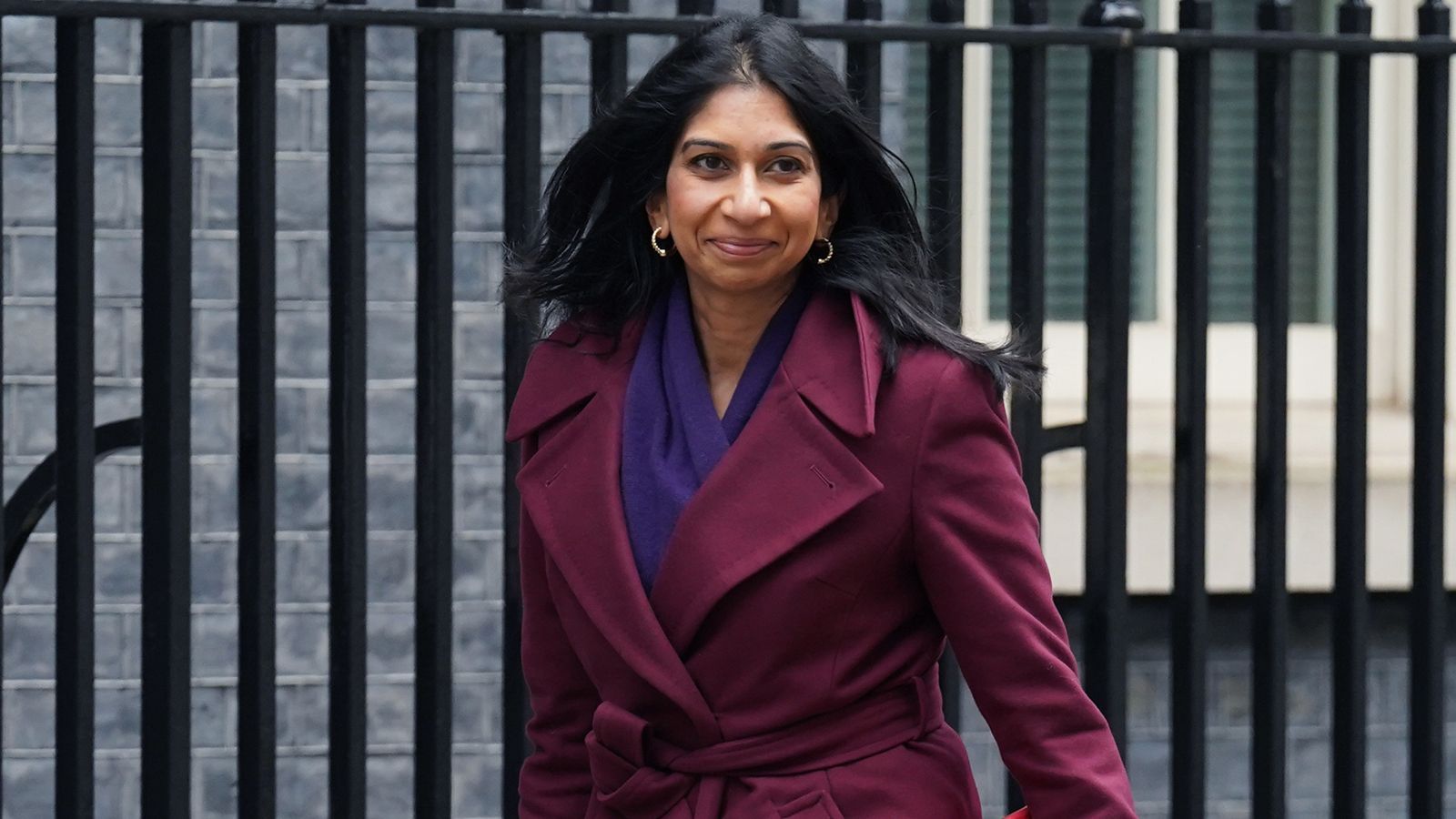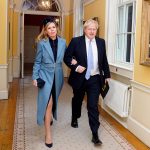Suella Braverman has said the government’s anti-terror programme needs “major reform” to “better understand the threats we face and the ideology underpinning them”.
The Home Secretary said she will report back in a year on her progress with overhauling Prevent, insisting the programme should be focused on security and not “political correctness”.
It comes after a review into Prevent found the government is not doing enough to combat “non-violent Islamist extremism”.
Prevent was ordered by former home secretary Priti Patel in 2019 to safeguard vulnerable people from being drawn into terrorism.
Politics hub: Zelenskyy presents helmet of fighter pilot as he urges UK to send jets
Police officers have been tasked to work alongside statutory partners and communities to support those at risk from all forms of extremism.
But an assessment of the programme, published on Wednesday, recommended a series of reforms.
Suella Braverman tells peers to back ‘proper penalties’ for disruptive protesters ahead of Lords vote
Suella Braverman faces backlash for rowing back on Windrush reforms
Rishi Sunak: From Zahawi and Raab to seatbelt gaffe – the U-turns and scandals of his first months as PM
Addressing the Commons following the review’s findings, Ms Braverman said programme has shown “cultural timidity” in the face of Islamist extremism.
“Prevent needs major reform. Prevent needs to better understand the threats we face and the ideology underpinning them.”
She added: “I will swiftly implement all of the review’s recommendations and will report on my progress a year from now.
“Prevent’s focus must solely be on security, not political correctness.”
Ms Braverman said antisemitism had been “tolerated, normalised and even accepted” for too long in the UK.
“This review makes clear that this double standard must change, and so Prevent will do more to recognise and combat the prevalence of antisemitism in extremist ideology and narratives,” she said.
The wide-ranging review found Prevent “has a double standard when dealing with the Extreme Right-Wing and Islamism”.
It said: “Challenging extremist ideology should not be limited to proscribed organisations but should also cover domestic extremists operating below the terrorism threshold who can create an environment conducive to terrorism.”
The review highlighted that Prevent has taken an “expansive approach to the extreme right-wing, capturing a variety of influences that, at times, has been so broad it has included mildly controversial or provocative forms of mainstream, right-wing leaning commentary that have no meaningful connection to terrorism or radicalisation”.
In regards to Islamism, it said the programme tends to take a “much narrower approach centred around proscribed organisations, ignoring the contribution of non-violent Islamist narratives and networks to terrorism”.
The government has accepted all 34 recommendations by the review in its 188-page report.
Reflecting on the review’s findings, Ms Braverman suggested that the programme had “defined the extreme right-wing too broadly”.
She said: “The threat from the extreme right-wing must not be minimised. It is serious and it is growing. It must be robustly addressed, but it is not the same either in nature or scale as the threat from Islamism.”
Responding to Ms Braverman’s pledge, shadow home secretary Yvette Cooper described the Prevent programme as “extremely important”.
“That is why we support it and want always to see the work on prevention of terrorism and prevention of extremism improved, updated and scrutinised,” she told MPs.
“But the review should have been a great opportunity and that opportunity was missed. Instead of being a way to build consensus, it has instead been mishandled.”
Ms Cooper said the government had not updated their counter-extremism strategy since 2015, before adding that Ms Braverman’s response to the review and its conclusions “feel very confused”.






















